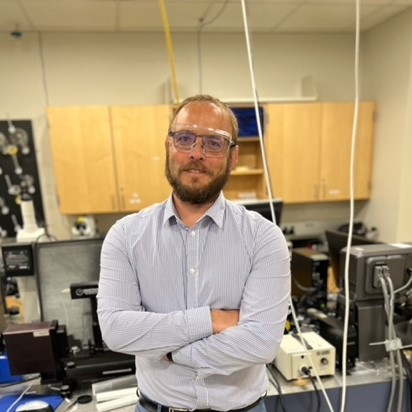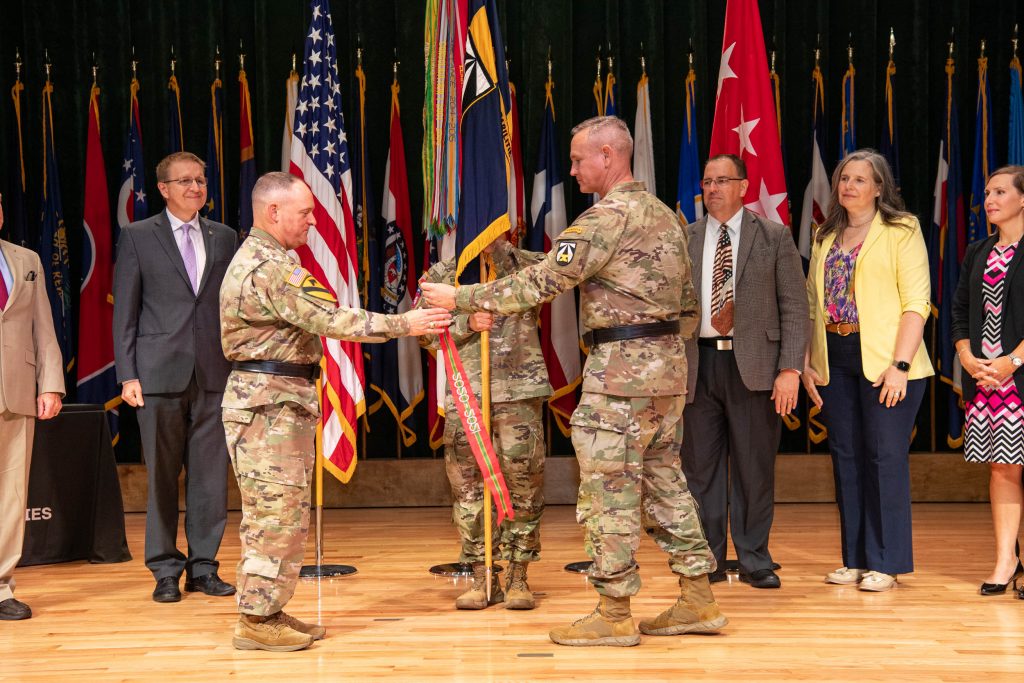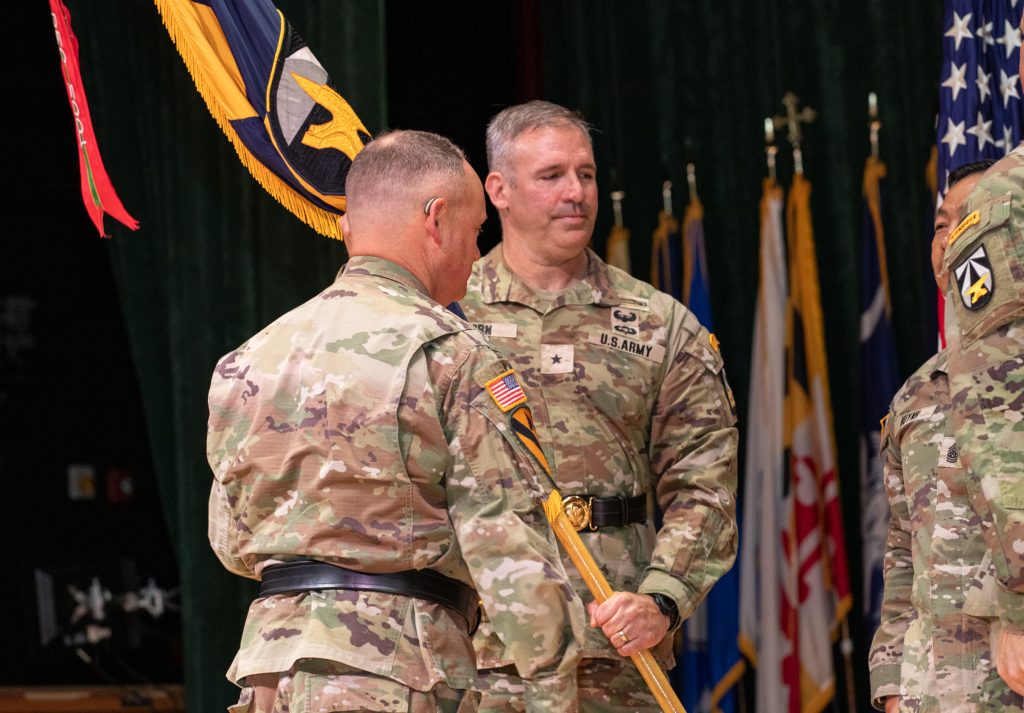DEVCOM hosts German scientist for ‘once in a lifetime opportunity’
July 20, 2022Living and working in a foreign country is a ‘once in a lifetime opportunity,’ according to Michael Schuch, Ph.D., which is why he didn’t hesitate to apply for a position as a scientist with the U.S. Army Combat Capabilities Development Command’s Army Research Laboratory. Schuch is one of three foreign exchange scientists recently selected to work within the DEVCOM enterprise as part of the Army’s Engineer and Scientist Exchange Program.
The Deputy Assistant Secretary of the Army for Defense Exports and Cooperation is the Army’s executive agent for the ESEP. DASA(DE&C) manages and supports incoming and outgoing exchange scientists and engineers in accordance with bilateral ESEP agreements established with 16 countries, including the United Kingdom, France, Germany, Japan, South Korea and Australia.
In January 2022, Schuch and his family moved from their home in Germany to the Boston area to complete a year-long assignment at the Army’s Institute of Soldier Nanotechnologies at the Massachusetts Institute of Technology. The ISN is a team of MIT, Army and industry partners that work together to discover and field technologies that advance Soldier protection and survivability capabilities through basic research on nanotechnology.
“The research I am doing at ARL is very similar to the research I am doing in Germany. I am trying to improve how scientists characterize the composition of materials, which is important to improve material properties,” Schuch said. “For example, if you view metal under a microscope, you will see very distinct features and different sizes, which represent the microstructure. Understanding the relation between the microstructure and the material properties is the ‘holy grail’ in material science.”
In Germany, Schuch works at the Bundeswehr Research Institute for Materials, Fuels and Lubricants as a research scientist and manager. Prior to this position, he served in the German Armed Forces from 1999 to 2000. While the ESEP assignment is an excellent opportunity and adventure, Schuch’s family overcame several hurdles when they moved to the U.S., but their ability to improvise has helped.
“I have the opportunity to work with really smart people at DEVCOM. Hopefully, I will learn new things and gain new perspective and ideas. I like the ‘glass half full’ mentality that American people have, and I feel I should embrace it,” Schuch said.
Each ESEP participant is paired with sponsor(s) who assist before, during and immediately after the assignment. Claudia Quigley, ARL North East regional lead and John McConville, Army Research Office executive fellow/technology transfer officer, are sponsoring Schuch. They helped Schuch and his family connect with other European families at MIT. In general, ESEP sponsors help with facility access, security processes, physical workspace and computer access, work schedules and personal arrangements including housing, banking/finances and enrolling children in school.
“One of the most important personality traits to be successful as an ESEP participant is the ability to make friends easily. It is also important to be able to work and interact with a diverse group of researchers and scholars, especially in the Boston area, which is known for its diverse academic population,” Quigley said.
The ESEP also provides an opportunity for U.S. Army scientists and engineers to work in foreign partner laboratories and technical centers. Each year the DASA(DE&C) releases a call for ESEP applications and selects between 5-10 top-performing, mid-career-level engineers and scientists across Army Research, Development, Test and Engineering organizations to receive central funding for overseas assignments.
The package to apply for an ESEP position includes: a Senior Executive Service/General Officer-level endorsement letter; professional background information (similar to a resume); career-broadening objectives; position description outlining the assignment; authorizations to relocate outside the continental U.S.; and a 12-month budget estimate. DASA(DE&C) evaluates each candidate on: merits of the proposed assignment; importance of the research/technology areas to the U.S. Army; command endorsement; candidate’s experience/education/grade/technical skills; political and geographic considerations; foreign language(s) spoken; the candidate’s potential for future positions of greater authority; and funding source and availability of funds.
Historically, DEVCOM has been one of the most active and supportive U.S. Army organizations in leveraging the ESEP. Currently, six DEVCOM employees are deployed to four partner nations, – U.K, Germany, the Republic of Korea and the Netherlands – and several more are in the final stages of preparing to deploy to Germany, Chile, Australia, Spain, Japan and the Republic of Korea in the next few months. Three foreign exchange scientists – one from Chile and two from Germany, including Schuch – are currently embedded within DEVCOM.
The DEVCOM Science and Technology Integration directorate plays a critical role coordinating ESEP across the command’s research laboratory and centers. S&TI provides ESEP information outreach sessions, supports employees who are interested in applying to the ESEP and guides recently selected ESEPs as they prepare for deployment. S&TI also provides ESEP annual program reviews to DEVCOM senior leadership and assists with incoming foreign ESEPs.
U.S. Army ESEPs submit an end-of-assignment report with input from home and host supervisors within 30 days of their return. Foreign ESEPs generally complete their end-of-assignment report before returning home. In addition, some Army organizations have additional requirements for ESEPs. For example, DEVCOM ESEPs are also required to prepare and present their ESEP Assignment Out-brief to DEVCOM senior leaders during the DEVCOM ESEP Annual Program Review after returning home.
The call for FY24 ESEP applications is open, and submissions will be due to the DEVCOM S&TI team in October 2022. Assignments typically last one year, and candidates chosen for this round will begin their overseas assignments in October 2023.
“This is a rare and remarkable opportunity for DEVCOM researchers to live and work side-by-side with researchers around the globe on S&T that will benefit the world. The ESEP encourages international cooperation and S&T burden-sharing with our closest allies,” said Collier Slade, chief of DEVCOM S&TI Partnerships Division.
The U.S. Army Combat Capabilities Development Command — DEVCOM — is home to the Army’s largest pool of civilian scientists, engineers, analysts and technicians who are the bedrock for discovering and developing the capabilities Soldiers need to deter, and when necessary, defeat current and future adversaries.
DEVCOM is a major subordinate command of Army Futures Command, and together the Team of Teams provides the scientific and engineering expertise necessary to better integrate modernization priorities and give the Army, as part of the Joint Force, the ability to act faster and more effectively than the adversary.




